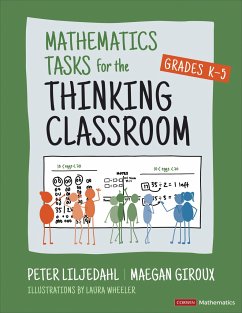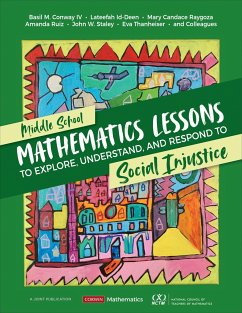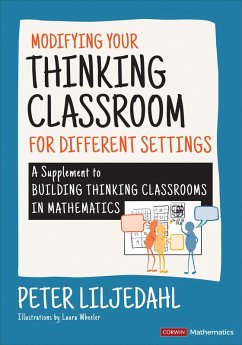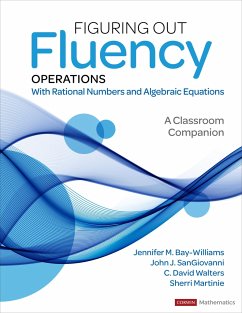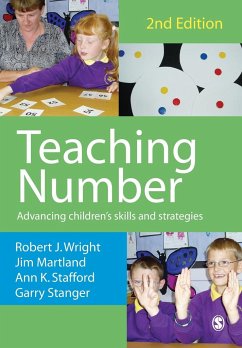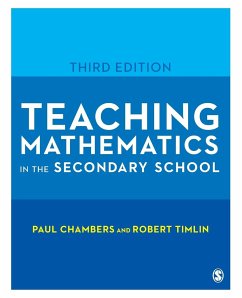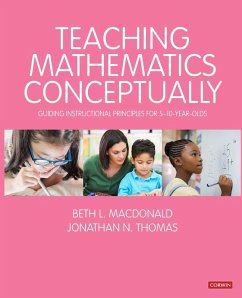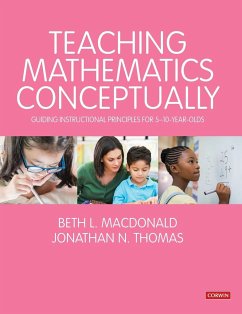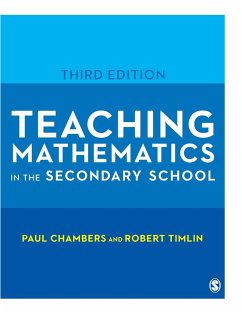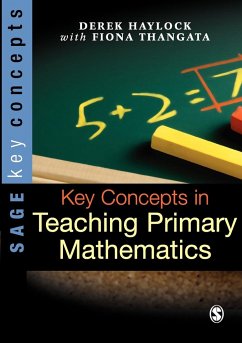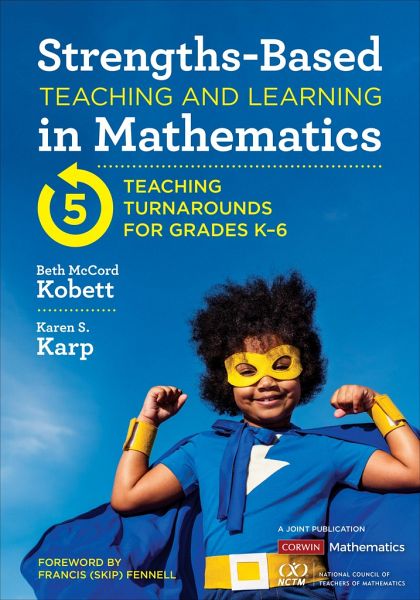
Strengths-Based Teaching and Learning in Mathematics
Five Teaching Turnarounds for Grades K-6
Versandkostenfrei!
Versandfertig in 6-10 Tagen
29,99 €
inkl. MwSt.

PAYBACK Punkte
15 °P sammeln!
This book is a game changer! Strengths-Based Teaching and Learning in Mathematics: 5 Teaching Turnarounds for Grades K- 6 goes beyond simply providing information by sharing a pathway for changing practice. . . Focusing on our students strengths should be routine and can be lost in the day-to-day teaching demands. A teacher using these approaches can change the trajectory of students lives forever. All teachers need this resource!Connie S. Schrock Emporia State University National Council of Supervisors of Mathematics President, 2017-2019NEW COVID RESOURCES ADDED: A Parent s Toolkit to Strengt...
This book is a game changer! Strengths-Based Teaching and Learning in Mathematics: 5 Teaching Turnarounds for Grades K- 6 goes beyond simply providing information by sharing a pathway for changing practice. . . Focusing on our students strengths should be routine and can be lost in the day-to-day teaching demands. A teacher using these approaches can change the trajectory of students lives forever. All teachers need this resource!
Connie S. Schrock
Emporia State University
National Council of Supervisors of Mathematics President, 2017-2019
NEW COVID RESOURCES ADDED: A Parent s Toolkit to Strengths-Based Learning in Math is now available on the book s companion website to support families engaged in math learning at home. This toolkit provides a variety of home-based activities and games for families to engage in together.
Your game plan for unlocking mathematics by focusing on students strengths.
We often evaluate student thinking and their work from a deficit point of view, particularly in mathematics, where many teachers have been taught that their role is to diagnose and eradicate students misconceptions. But what if instead of focusing on what students don t know or haven t mastered, we identify their mathematical strengths and build next instructional steps on students points of power?
Beth McCord Kobett and Karen S. Karp answer this question and others by highlighting five key teaching turnarounds for improving students mathematics learning: identify teaching strengths, discover and leverage students strengths, design instruction from a strengths-based perspective, help students identify their points of power, and promote strengths in the school community and at home. Each chapter provides opportunities to stop and consider current practice, reflect, and transfer practice while also sharing
· Downloadable resources, activities, and tools
· Examples of student work within Grades K 6
· Real teachers notes and reflections for discussion
It s time to turn around our approach to mathematics instruction, end deficit thinking, and nurture each student s mathematical strengths by emphasizing what makes them each unique and powerful.
Connie S. Schrock
Emporia State University
National Council of Supervisors of Mathematics President, 2017-2019
NEW COVID RESOURCES ADDED: A Parent s Toolkit to Strengths-Based Learning in Math is now available on the book s companion website to support families engaged in math learning at home. This toolkit provides a variety of home-based activities and games for families to engage in together.
Your game plan for unlocking mathematics by focusing on students strengths.
We often evaluate student thinking and their work from a deficit point of view, particularly in mathematics, where many teachers have been taught that their role is to diagnose and eradicate students misconceptions. But what if instead of focusing on what students don t know or haven t mastered, we identify their mathematical strengths and build next instructional steps on students points of power?
Beth McCord Kobett and Karen S. Karp answer this question and others by highlighting five key teaching turnarounds for improving students mathematics learning: identify teaching strengths, discover and leverage students strengths, design instruction from a strengths-based perspective, help students identify their points of power, and promote strengths in the school community and at home. Each chapter provides opportunities to stop and consider current practice, reflect, and transfer practice while also sharing
· Downloadable resources, activities, and tools
· Examples of student work within Grades K 6
· Real teachers notes and reflections for discussion
It s time to turn around our approach to mathematics instruction, end deficit thinking, and nurture each student s mathematical strengths by emphasizing what makes them each unique and powerful.



